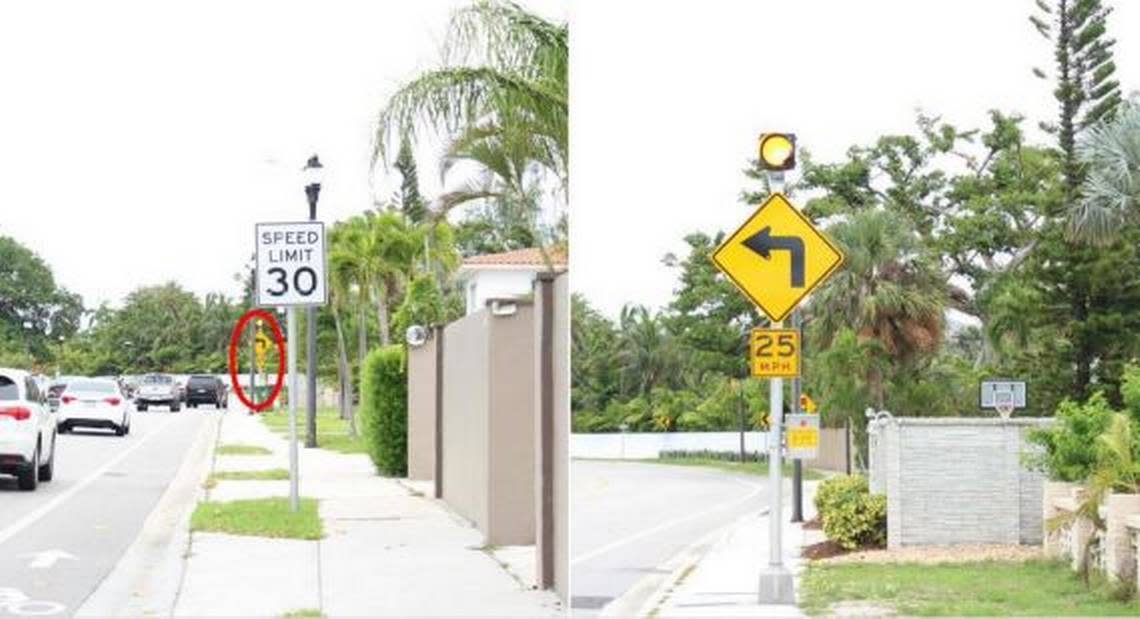Two students died in a 116-mph crash in Fort Lauderdale. How much is Tesla to blame?
Tesla is 1% to blame in a Fort Lauderdale high-speed crash that killed two 18-year-old high school seniors after a company dealership disabled the car’s speed limiter without asking the parents, a Florida jury has found.
This week’s verdict in Fort Lauderdale federal court put 90% of the blame on Barrett Riley, the late teen who was driving over 100 mph in a 30-mph zone, and 9% on Riley’s father, James Riley, who brought the lawsuit against the electric car company, the court’s final judgment shows. It also found that the mother, Jenny Riley, was not at fault for the death of her son.
The jurors on Monday also awarded damages in $6 million to the teen’s mother and $4.5 million to the father for the pain and suffering they endured, of which Tesla would only have to pay 1% or $105,000.
It’s the first known case involving a Tesla crash that has gone to trial, Michael Brooks, acting executive director at the Center for Auto Safety, told The Associated Press.
READ MORE: Teens burned to death in 116 mph crash. Here’s why the driver’s parents have sued Tesla
The lawsuit stated the 2014 Tesla Model S never should have gone that fast or caused an inferno that killed the two Fort Lauderdale Pine Crest High School seniors 16 days before their graduation in May 2018. James Riley, the driver’s father, claimed in the suit the crash was “entirely survivable” and that it was the ensuing fire caused by defective lithium ion batteries that killed the teenagers, but the Fort Lauderdale court dismissed that claim, leaving the negligence claim against Tesla, the Sun Sentinel reported.

Tesla denied negligence and argued that the teen’s parents were the ones who were negligent when they allowed their son to drive “when they were aware of his history of speeding and reckless driving,” The Associated Press reported citing the judge’s instructions to the jury.
A 2019 report of the National Transportation Safety Board determined that the probable cause of the crash and post-crash fire was the “driver’s loss of control as a result of excessive speed.” It also noted that the post-crash fire originating in the crash-damaged lithium-ion traction battery contributed to the severity of the injuries.
READ MORE: 116 mph, fire and no speed-limiting device: Final report on Tesla crash that killed teens
After Barrett Riley got a ticket for driving the Tesla at 112 mph in a 50-mph zone in March 2018, James Riley ordered a speed limiter installed, capping the vehicle’s speed at no more than 85 mph. But the NTSB probe revealed that his son later asked workers at a Tesla dealership in Dania Beach to remove the speed control.
Two months after getting the ticket and following the removal of the speed limiter, Riley hit triple digit speeds, with his classmate Edgar Monserratt Martinez in the front passenger seat and another teen in a back seat, according to investigators. He blew through the 1300 block of Fort Lauderdale’s Seabreeze Boulevard, a 30-mph zone approaching a curve with a 25-mph advised speed.

Authorities said Riley lost control of the Tesla, which smacked the wall in front of a home twice, burst into flames and crashed into a light pole across the street. He was going 116 mph three seconds before impact. Riley and Monserratt died and the back seat passenger was hospitalized.
READ MORE: Teens burned to death after 116-mph crash. Lawsuit blames Tesla for the speed and fire
A Broward County civil lawsuit filed by Edgar Monserratt’s family, naming Tesla and James Riley among the defendants, remains in progress.
Both Riley and Monserratt’s family also filed motions for Judge John Bowman’s removal on the grounds of bias. Both motions were denied.
Miami Herald staff writer Jay Weaver contributed to this report.
